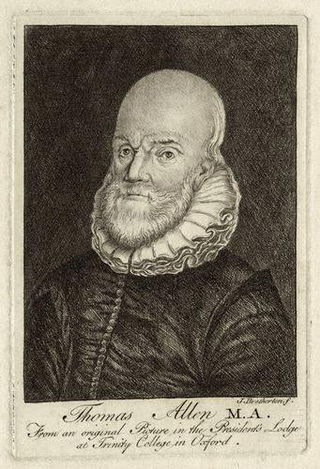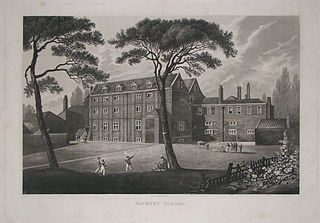
The Keeper or Master of the Rolls and Records of the Chancery of England, known as the Master of the Rolls, is the President of the Civil Division of the Court of Appeal of England and Wales and Head of Civil Justice. As a judge, the Master of the Rolls is second in seniority in England and Wales only to the Lord Chief Justice. The position dates from at least 1286, although it is believed that the office probably existed earlier than that.

The Advocates Library, founded in 1682, is the law library of the Faculty of Advocates, in Edinburgh. It served as the national deposit library of Scotland until 1925, at which time through an Act of Parliament the National Library of Scotland was created. All the non-legal collections were transferred to the National Library. Today, it alone of the Scottish libraries still holds the privilege of receiving a copy of every law book entered at Stationers' Hall.

Sir Henry George Ward GCMG was an English diplomat, politician, and colonial administrator.

Thomas Allen (or Alleyn) (21 December 1542 – 30 September 1632) was an English mathematician and astrologer. Highly reputed in his lifetime, he published little, but was an active private teacher of mathematics. He was also well connected in the English intellectual networks of the period.

The British Critic: A New Review was a quarterly publication, established in 1793 as a conservative and high-church review journal riding the tide of British reaction against the French Revolution. The headquarters was in London. The journal ended publication in 1843.

The Lieutenant of the Tower of London serves directly under the Constable of the Tower. The office has been appointed at least since the 13th century. There were formerly many privileges, immunities and perquisites attached to the office. Like the Constable, the Lieutenant was usually appointed by letters patent, either for life or during the King's pleasure.

Justice of the Common Pleas was a puisne judicial position within the Court of Common Pleas of England and Wales, under the Chief Justice. The Common Pleas was the primary court of common law within England and Wales, dealing with "common" pleas. It was created out of the common law jurisdiction of the Exchequer of Pleas, with splits forming during the 1190s and the division becoming formal by the beginning of the 13th century. The court became a key part of the Westminster courts, along with the Exchequer of Pleas and the Court of King's Bench, but with the Writ of Quominus and the Statute of Westminster, both tried to extend their jurisdiction into the realm of common pleas. As a result, the courts jockeyed for power. In 1828 Henry Brougham, a Member of Parliament, complained in Parliament that as long as there were three courts unevenness was inevitable, saying that "It is not in the power of the courts, even if all were monopolies and other restrictions done away, to distribute business equally, as long as suitors are left free to choose their own tribunal", and that there would always be a favourite court, which would therefore attract the best lawyers and judges and entrench its position. The outcome was the Supreme Court of Judicature Act 1873, under which all the central courts were made part of a single Supreme Court of Judicature. Eventually the government created a High Court of Justice under Lord Coleridge by an Order in Council of 16 December 1880. At this point, the Common Pleas formally ceased to exist.

The position of Dean Ireland's Professor of the Exegesis of Holy Scripture was established at the University of Oxford in 1847. This professorship in the critical interpretation or explanation of biblical texts, a field known as exegesis, was instituted by John Ireland, who was Dean of Westminster from 1816 until his death in 1842. He founded scholarships in his lifetime at the University of Oxford, which are still awarded after an examination to undergraduates "for the promotion of classical learning and taste". In his will, he left £10,000 to the university, with the interest arising to be applied to the professorship. The first professor, Edward Hawkins, was appointed in 1847. The second Dean Ireland's Professor, Robert Scott, had won an Ireland scholarship in 1833 while studying at Christ Church.
Eastman's Royal Naval Academy, originally in Southsea and later at Winchester, both in England, was a preparatory school. Between 1855 and 1923 it was known primarily as a school that prepared boys for entry to the Royal Navy. Thereafter, it was renamed Eastman's Preparatory School and continued until the 1940s. According to Jonathan Betts, it was "considered one of the top schools for boys intended for the Navy".
Edward William Grinfield (1785–1864) was an English biblical scholar.

Newcome's School was a fashionable boys' school in Hackney, then to the east of London, founded in the early 18th century. A number of prominent Whig families sent their sons there. The school closed in 1815, and the buildings were gutted in 1820. In 1825 the London Orphan Asylum opened on the site. Today the Clapton Girls' Academy is located here.
The Evangelical Magazine was a monthly magazine published in London from 1793 to 1904, and aimed at Calvinist Christians. It was supported by evangelical members of the Church of England, and by nonconformists with similar beliefs. Its editorial line included a strong interest in missionary work.